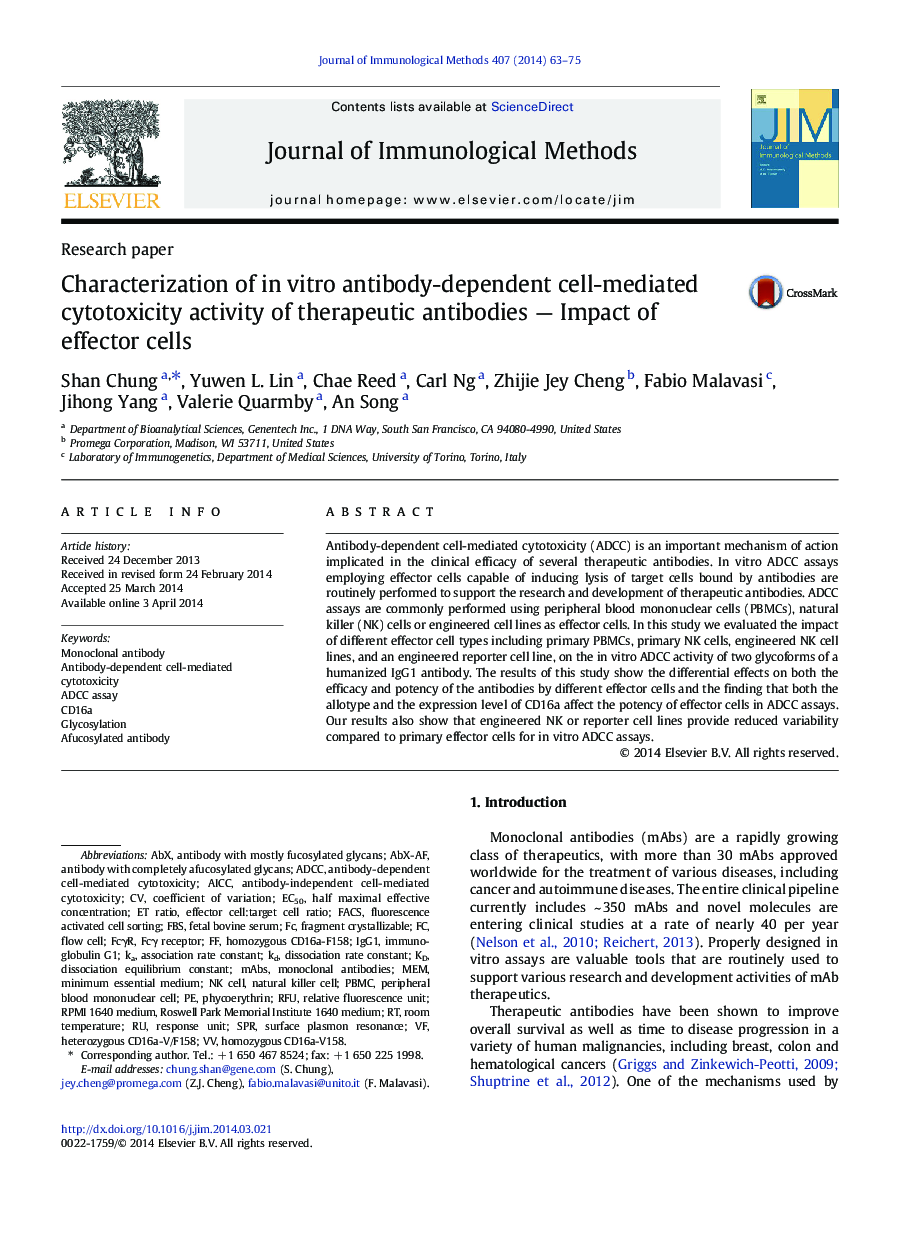| Article ID | Journal | Published Year | Pages | File Type |
|---|---|---|---|---|
| 8417773 | Journal of Immunological Methods | 2014 | 13 Pages |
Abstract
Antibody-dependent cell-mediated cytotoxicity (ADCC) is an important mechanism of action implicated in the clinical efficacy of several therapeutic antibodies. In vitro ADCC assays employing effector cells capable of inducing lysis of target cells bound by antibodies are routinely performed to support the research and development of therapeutic antibodies. ADCC assays are commonly performed using peripheral blood mononuclear cells (PBMCs), natural killer (NK) cells or engineered cell lines as effector cells. In this study we evaluated the impact of different effector cell types including primary PBMCs, primary NK cells, engineered NK cell lines, and an engineered reporter cell line, on the in vitro ADCC activity of two glycoforms of a humanized IgG1 antibody. The results of this study show the differential effects on both the efficacy and potency of the antibodies by different effector cells and the finding that both the allotype and the expression level of CD16a affect the potency of effector cells in ADCC assays. Our results also show that engineered NK or reporter cell lines provide reduced variability compared to primary effector cells for in vitro ADCC assays.
Keywords
FcγRAICcmAbsRoswell Park Memorial Institute 1640 mediumABXRFUET ratioEC50RPMI 1640 mediumPBMCCD16AFBSFACSADCCIgG1Monoclonal antibodyantibody-dependent cell-mediated cytotoxicityImmunoglobulin G1Surface plasmon resonanceSPRdissociation equilibrium constantassociation rate constantdissociation rate constantminimum essential mediumRoom temperaturefetal bovine serumNK cellPeripheral blood mononuclear cellFlow cellNatural killer cellCoefficient of Variationphycoerythrinfluorescence activated cell sortingfragment crystallizableMEMhalf maximal effective concentrationrelative fluorescence unitResponse unitMonoclonal antibodiesGlycosylationFcγ receptor
Related Topics
Life Sciences
Biochemistry, Genetics and Molecular Biology
Biotechnology
Authors
Shan Chung, Yuwen L. Lin, Chae Reed, Carl Ng, Zhijie Jey Cheng, Fabio Malavasi, Jihong Yang, Valerie Quarmby, An Song,
